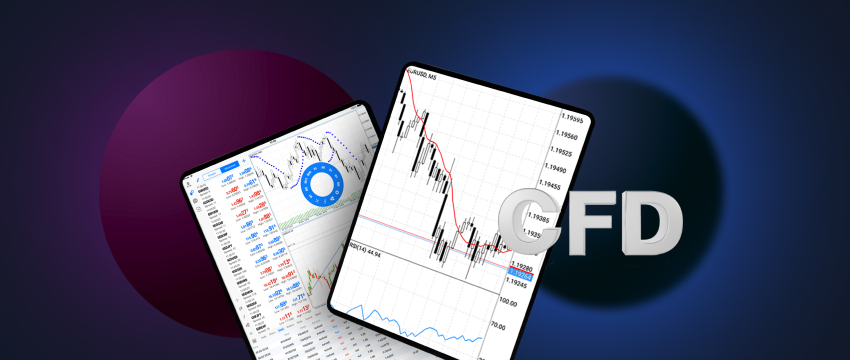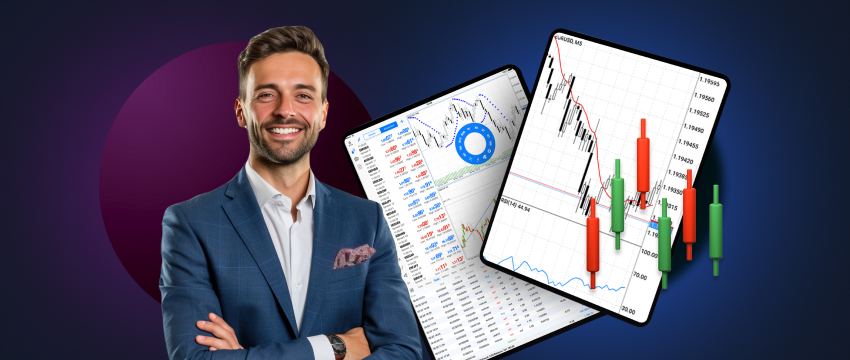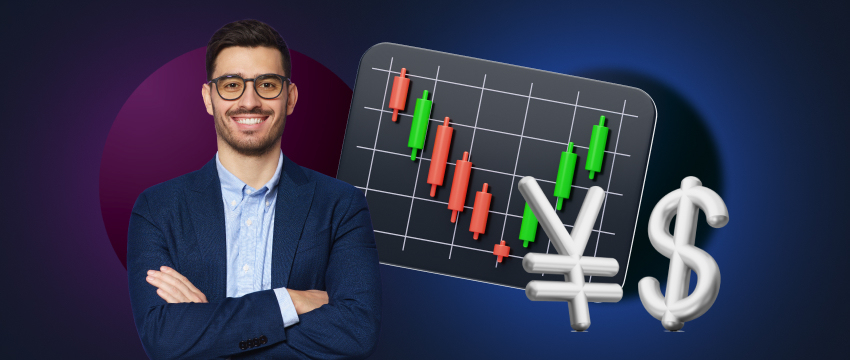CFD trading has become a very popular way for traders to access different financial markets and trade their preferred Contract of Different instruments. It also serves as a convenient strategy for portfolio diversification, as traders don’t have to own the underlying asset.
But can CFDs be problematic? Well, the answer to this question lies not with the Contract of Differences itself, but more to do with CFD trading in general. Let’s jump into what some of the problems traders face when trading CFDs.
1. CFDs are highly leveraged
Leverage can in many instances help an investor increase their potential for maximising returns on successful trades. However, without a proper understanding of how leverage actually works, or the risks that it imposes, its use can very quickly lead to large, unexpected losses.
So what should a trader watch out for when using leverage?
Excessive use:
- The more leverage you use, the greater the risk you take. Remember, you use leverage to borrow funds and increase the size of your investment. This means however that a small percentage change in a currency pair or an adverse market movement can quickly lead to significant financial loss. Ensure your use of leverage aligns with your budget.
Margin requirements:
- When using leverage, the trader must maintain a specific margin level. If their account balance falls below this threshold, it triggers a margin call. Consequently, the investor must deposit more capital to maintain the investment.
تقلبات السوق:
- A trader’s account is susceptible to market fluctuations, with increased risk during periods of short-term volatility when losses can very quickly accumulate due to rapid and unpredictable price movements.
Overconfidence:
- The ability to access leverage may result in an investor opening more positions than they can effectively manage. This often times leads to overtrading, increasing the likelihood of losses.
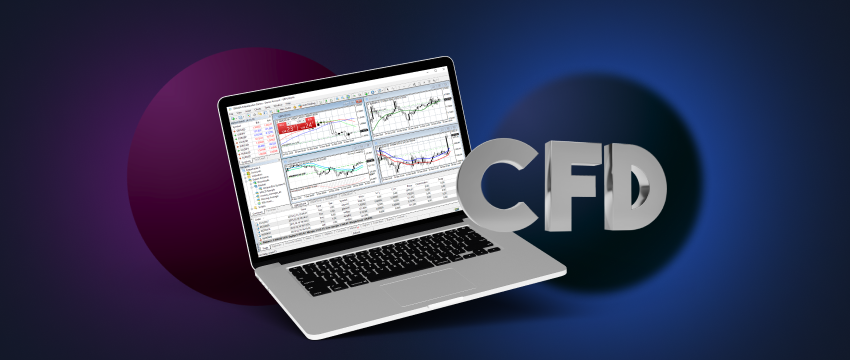
2. CFDs may be considered complicated
As with most things to do with investing, having good insights on what you’ll be dealing within the markets is crucial. The same principle applies to CFDs.
Contracts for Difference are complex instruments. Without properly understanding how to engage in Contract of Differences trading, you’ll likely set yourself up for failure. So how does one learn more about CFDs before engaging with them? Well, this is where ongoing learning comes into play.
Trading is by no means for the faint hearted and if you want to achieve some measure of success, you need to start off by getting a trading related education. There are thousands of resources available online to learn more about CFD trading. Having to sift through what’s credible and what isn’t however is a bit of a challenge, which is why traders regularly make use of the educational materials found on their brokers’ websites.
For example, T4Trade offers its traders a wealth of materials and tools via its Academy. Here, traders can access e-books, videos-on-demand, webinars, podcasts, Live TV, and even insights into the impact of trading psychology on trading.
Additionally, T4Trade also offers many useful tools to help a trader boost their investing skills, ranging from an Economic Calendar to Trading Calculators, and Trading Central, the brokers one-stop shop for investment insights.
3. CFDs and regulatory challenges
Regulations for managing Contracts of Differences vary across different parts of the world. Some regions have little to no regulation, affecting transparency regarding terms, conditions, and costs.
In other places, strict regulations govern CFDs or completely prohibit CFD trading. Interestingly, concerns arise over how Contract of Differences is advertised to novice or inexperienced traders. The takeaway is clear: no magic formula guarantees 100% success, regardless of marketing claims, whether you’re experienced or not.
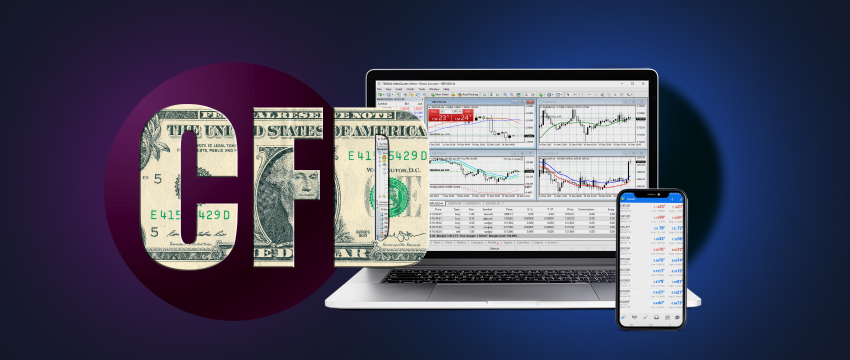
4. The counterparty risk
A CFD is essentially an agreement that a trader will enter into with a broker. In other words, the only asset being traded is the Contract of Differences itself. The consequence of this however is that if the provider goes bankrupt, the investor could lose their capital, irrespective of how the market performs. It’s therefore very important for traders to do thorough research on the prospective CFD broker before entering into any contracts, as follows:
Regulatory status
- Check the regulatory status of the forex broker to ensure that it is regulated by a reputable financial authority.
Online reviews and testimonials
- Look for and read online reviews and ratings on reputable review sites (e.g. TrustPilot). Research what other traders have to say across social media platforms and community forums.
Spreads and commissions
- Compare the spreads and commissions charged by different brokers. Ensure their websites clearly define these terms for transparency and to avoid unexpected charges.
Customer support
- Check the availability of customer support channels, be this via email, telephone or live chat.
Safety and Security
- Also ensure that the broker uses advanced, secure technologies to protect your personal data and financial information.
Other criteria by which to choose a reliable broker are whether they offer current and insightful educational resources to help you become a more skilled CFD investor (e.g., videos, podcasts, blogs, webinars, seminars, e-books, etc). Establish what trading conditions you’ll encounter, whether you’ll have the benefit of choosing from multiple trading accounts, and if the withdrawal or deposit of funds is quick and easy.
Furthermore, investigate what financial instruments they make available for you to trade. The last thing you want is to pick a broker who doesn’t offer the specific asset you’re set on. Also check that the broker will give you access to a cutting-edge, user friendly trading platform (e.g. MetaTrader 4), that meets your specific needs. MT4 is probably one of the most popular trading platforms in the world, particularly due to its ease of use, advanced analysis tools, and algorithmic trading.

Effective risk management to mitigate trading risks
Now that you know what to look out for, consider the following risk management techniques to trade CFDs more efficiently and to safeguard your funds.
Risk management tools
- Make sure to incorporate risk management tools into your CFD investment strategy to reduce the anxiety associated with the potential loss of your entire investment. This includes stop-loss and take-profit orders to protect your money.
Trading Journal – Education
- Maintain a trading journal to document all of your trades, including the rationale behind your trading decisions, as well as the emotions that accompanied them and their triggers. This will allow you to establish a history of your investing actions that can be adjusted as necessary.
- Refrain from the urge to engage in excessive trading. Base your trading decisions on rationality and data obtained from your technical or fundamental analysis. Avoid letting the fear of missing out lead to impulsive trading choices. Always invest cautiously and consider taking breaks during your investing activities.
- Continuously learn. Strive to keep your knowledge up to date and gather as much information on CFD trading as possible. This will likely lead to making more well-informed investing decisions, based on credible insights rather than your emotions on a specific day.
Demo trading account
- Consider signing up for a demo trading account to practice CFD trading and to put your education to the test. A demo account is a brilliant way to improve your skills by putting what you’ve learned into practice. With it, you can deploy different CFD trading strategies and assess outcomes, without using your own money.
- Having access to a simulated investing environment that mimics live trading conditions allows you to boost your capabilities at your own pace, until you’ve built the confidence to move to live investing.
- If you’re a beginner trader, this is great as it means you can really get into the nitty-gritty of CFD trading using virtual funds. If you’re a more experienced investor, you can test out as many trading strategies as you want, regardless of complexity, to be sure they perform more or less in the way you hope.
إخلاء مسؤولية: This material is for general informational and educational purposes only and should not be considered investment advice or an investment recommendation. T4Trade is not responsible for any data provided by third parties referenced or hyperlinked in this communication.
